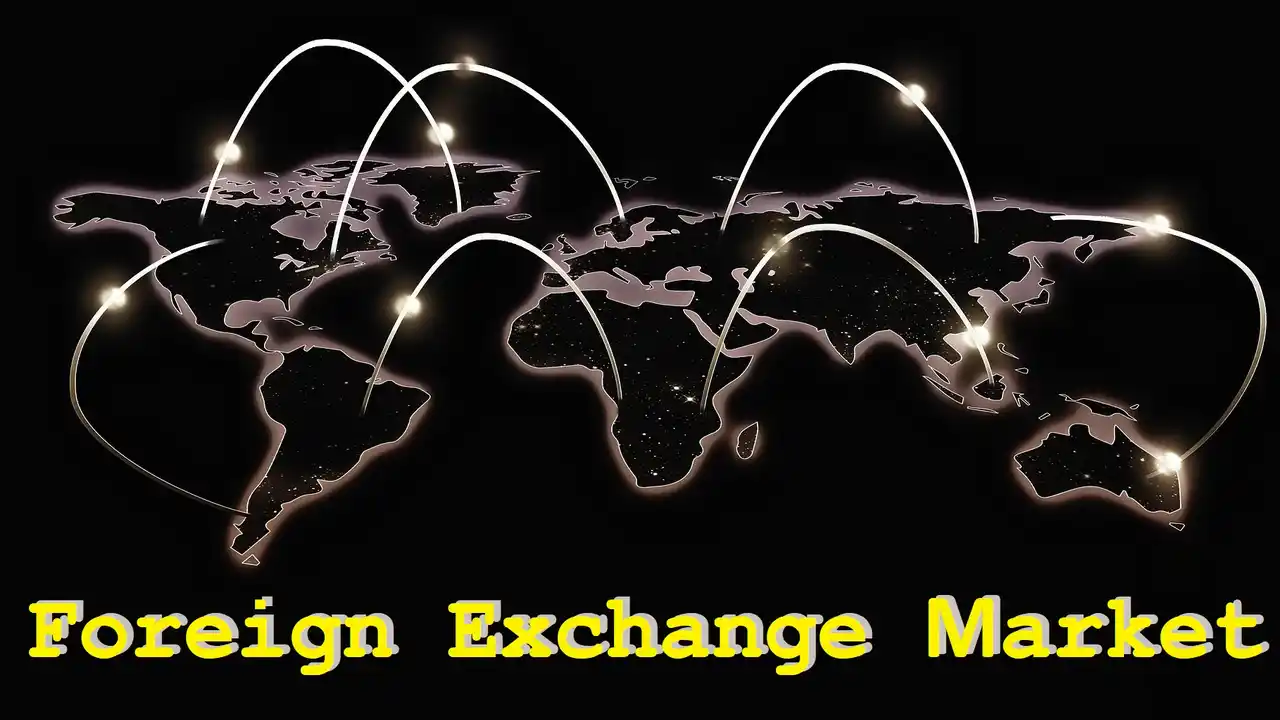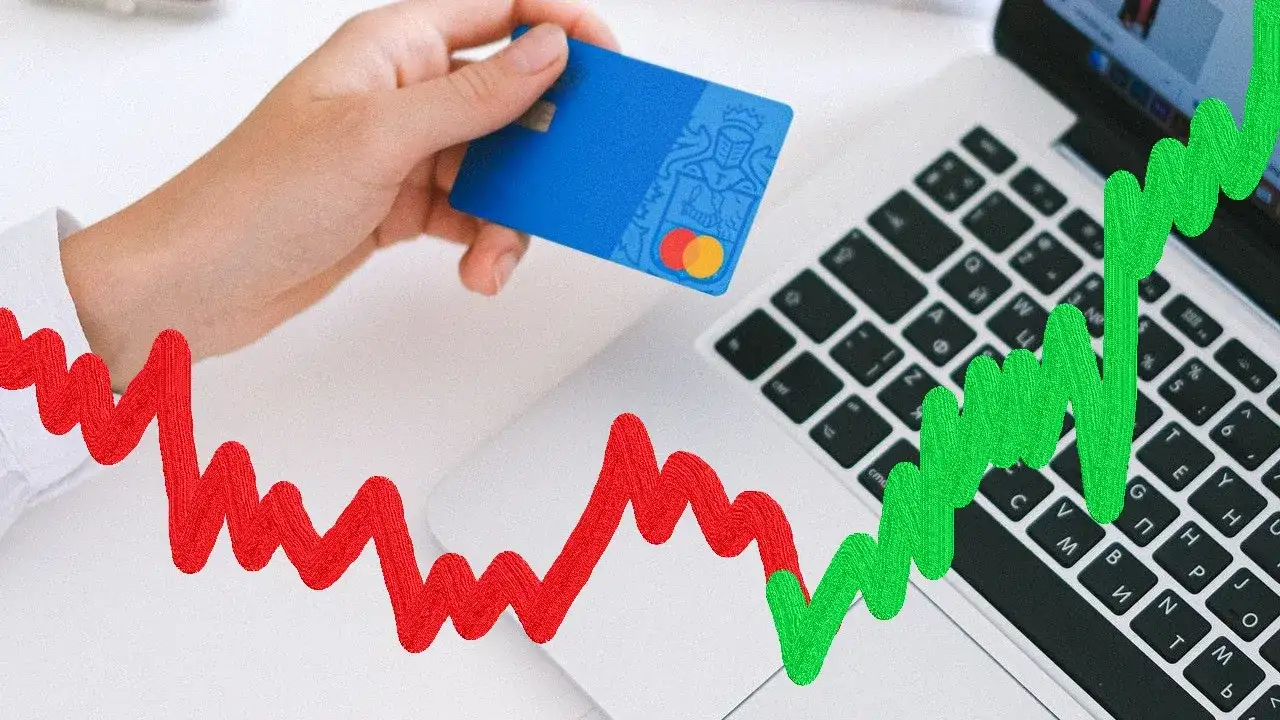Each country has its own currency for trade and commerce on the global market. Currency rigidity impedes international trade. Therefore the Foreign Exchange Market was establish for a specific reason. Currency exchange rates are determine by this market. Let us understand meaning, examples, types of foreign exchange market with features, functions, advantages and disadvantages of it.
Currency traders and investors buy and sell currencies online. It is open 24 hours a day, 5.5 days a week, but has no physical location. The global economy would suffer if the currency market did not exist. This subject must be cover first. Besides, this framework examines the various types, characteristics, and participants in the foreign exchange market. Read characteristics of foreign exchange market informative post to learn about the implications on groups of people.
What is Foreign Exchange Market?
The foreign exchange market is a global over-the-counter (OTC) market for currency comparison. So, this market is known as forex, FX, and the currency market. People can purchase, sell, trade, and speculate on this market.
Although, these markets are used by banks, foreign exchange dealers, commercial companies, central banks, investment management firms, hedge funds, retail foreign exchange dealers, and investors. The “Foreign Exchange Market” will be discuss in the next section.
Example of Foreign Exchange Market
Forward contracting aids in risk management and betting. Hedging with a forward contract is done by a wheat farmer who sells at a fixed price to eliminate price risk. A bread producer may purchase bread ahead of time in order to plan output and avoid price swings.
Based on what they know, speculators predict rising prices. Instead than using cash, they buy on the forward market. A speculator purchases a long position in the forward market, waits for the price to climb, and then sells for a profit.
Types of Foreign Exchange Market
You can read types of equity shares for more information purpose. Traders and speculators make money by betting on short-term market developments. Forex is a one-of-a-kind market. Following that, we’ll go over the various types of marketplaces.
Forward Foreign Exchange Market
In the forward market, foreign currency sales and purchases are settle at a later date. Future transactions are refer to by the forward exchange rate. Most overseas transactions are negotiate and complete in two days. The forward exchange rate helps both parties in a transaction.
Spot Foreign Exchange Market
Money is exchange swiftly in this market. Besides, buyers and sellers can get payable promptly base on the current exchange rate in this foreign currency market. On the spot market, one-third of currency exchanges are settle in one or two days.
These are the quickest methods of exchanging currencies. Buyers and sellers can pay at the current currency rate quickly. So, the majority of spot market transactions are settle in one or two days. Also, this enables traders to study how the currency market changes between the agreement and the deal, which may impact price.
Future Foreign Exchange Markets
Some forward market issues can be solve by futures markets. Forward and futures markets are govern by the same rules. On a futures exchange, also known as a futures market, people can buy and sell futures contracts.
Swap Foreign Exchange Market
The swap market is one of the largest and most liquid in the world, with many buyers and sellers. According to the Bank for International Settlements, over-the-counter interest rate swaps are worth more than $500 trillion.
In a swap, two parties exchange the cash flows or liabilities of two financial instruments. The majority of swaps include principal-based cash flows.
Option Foreign Exchange Market
An option grants an investor the right, but not the obligation, to purchase or sell an underlying instrument at a certain price and time. Options are sold in this market.
Functions of Foreign Exchange Market
Spot transactions in the foreign exchange market are increasing. On the other hand, currency exchange, traveler’s checks, and bank transfers are all prevalent. Here are some of the functions of foreign exchange market:
Performance
The purchasing power of each country is influence. Bank draughts, foreign currency banknotes, and phone transfers are all used. The foreign currency market facilitates the transfer of funds between countries so that payments can be made. The market deals with currencies.
Foreign Exchange Market Payables
It encourages globalization. The majority of overseas payments are made with three-month bills of exchange. During the credit period, the importer might sell the products and pay off the obligation.
Performance Risks
When exporters and importers agree to sell and buy items at the same prices and currency rates, they are hedging. Hedging safeguards against future currency-rate losses.
Features of Foreign Exchange Market
Commercial banks act as currency intermediates. They also facilitate international trade. Commercial banks make international investments. Moreover, brokers assist dealers and investors in locating the greatest deals by providing competitive quotes. So, this exchange market has distinct characteristics. Here are some features of Forex exchange market:
Fluidity
The FX market is the largest in the world. This is about international currency trading. Therefore, traders on this market can buy or sell currencies at any time.
The Market is Good
The structure of the forex market is continually changing. Exchange rates change every second and hour. Market dynamics influence prices as well as the activities of sellers and buyers.
Based on market dynamics, supply and demand communicate price signals. Besides, corporate and government policy can be influence by the market.
Transparency
This market is open and honest. Forex traders have all market data and information at their disposal. So, this allows for real-time monitoring of currency price variations in the portfolio.
24/7/365
Foreign exchange markets are open 24 hours a day, seven days a week due to global time zones. Dealers can transact at any time. The foreign currency market is influence by local sessions.
Advantages of Foreign Exchange Market
Futures markets can compensate for shortcomings in forward markets. Furthermore, futures and forward markets operate in a similar manner. The currency market is critical to the global economy. Consider the advantages of the FX market.
Because there are minimal rules, investors can freely invest. The Foreign Exchange Market is not centralize control by any clearinghouses or organizations. As a result, third parties are no longer require. Many investors enter the Forex market without paying any commissions. Investors do not need to be concerned about time because the market is open 24 hours a day, seven days a week. If investors do not feel safe, they may sell quickly.
Disadvantages of Forward Market
Futures markets are extremely liquid since anybody can participate in a transaction. Forward markets are not without problems. What’s incorrect is as follows:
- A lack of commerce
- Risky Counterparty (risk of Default is Always There)
- Immobility (because only two parties are involved)
The first two difficulties are cause by too much flexibility and generality. The forward market is analogous to a buyer-seller real estate transaction. Contract terms are now determine by what works best for the two parties, but multi-party contracts may be non-transferable. The counterparty risk in the forward market is constant. The insolvency of one party hurts the other.
Longer forward contracts increase the risk of the opposite party. Long-term price changes are more likely. Standard contracts are design to prevent illiquidity in futures trading, but there is always the danger of a counterparty default.
Major Participants on the Spot Exchange Market
In a forward contract, two parties (businesses, individuals, or government nodal agencies) agree to trade at a future price and amount. There is no cash exchange when the agreement is sign, hence there is no security deposit. Consider the spot exchange merchants.
Central Banks
Additionally, central banks, interfere in the market to keep the national currency from fluctuating too much and to meet the needs of the national economy.
If the rupee falls in value, the RBI may sell foreign currency (like dollar). More foreign currency implies the dollar will not depreciate. To avoid dollar appreciation, reverse the action.
Commercial Banks
The largest banks in the market. Although, commercial and investment banks dominate the currency market. They and their customers both trade. The bank trades currencies in order to profit from changes in exchange rates. When there are many transactions, banks trade. A broker can buy and sell foreign currency in small amounts.
Dealers, Brokers, Arbitrageurs and Speculators
Dealers buy cheap and sell dear. These also representatives focus on “wholesale activities” with other banks. Moreover, dealers collaborate with businesses and central banks. Low transaction fees and a thin spread 90% of all currency transactions are wholesale.
Conclusion
Forex is the largest and most active financial market on the planet. Moreover, the currency market is open 24 hours a day, seven days a week. From 5 p.m. EDT on Sunday through 5 p.m. EDT on Friday. Now you know what is foreign exchange market with examples, features, functions, advantages and disadvantages. The Foreign Exchange Market is accessible online.






